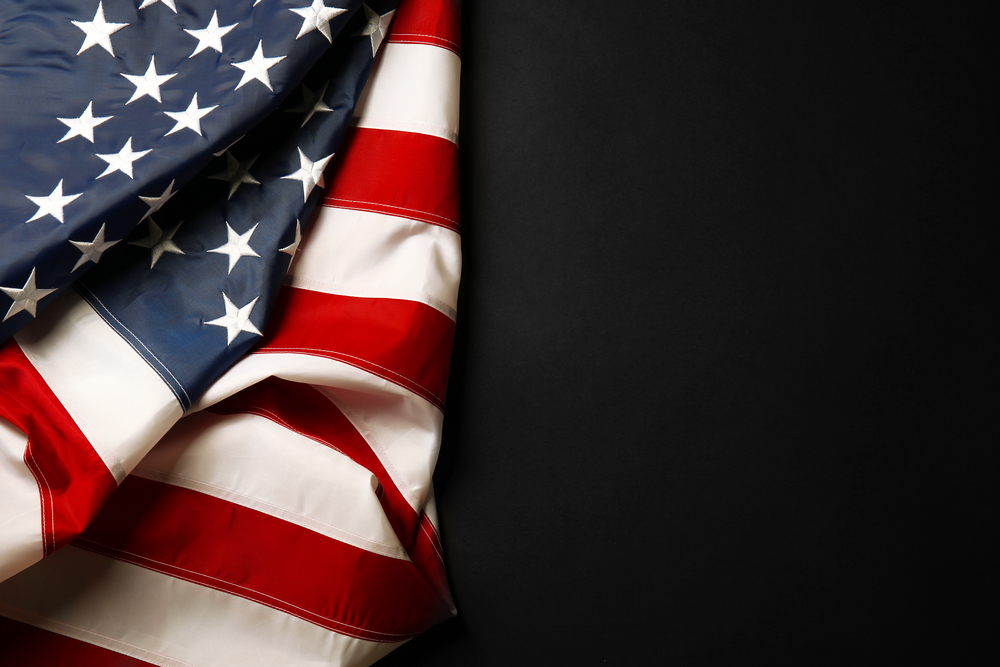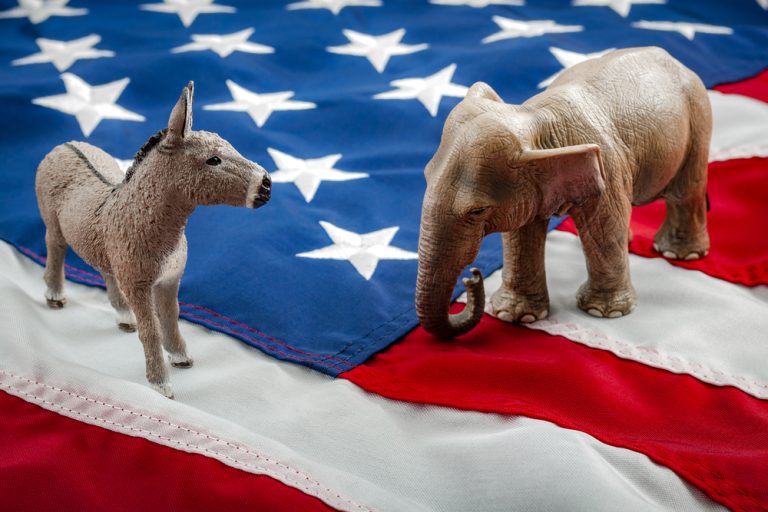
Sponsor vs. sponsor in the U.S. election: a guide to distinguish a ‘good’ from a ‘bad’ one
The activities of the two major American parties, the Democratic and Republican parties, are not altruistic. Lobbyism in American political culture, unlike in Europe, is not morally reprehensible. It is perfectly legitimate if it is open and transparent. Tens of billions of dollars, if not hundreds of billions of dollars are donated to both parties every year from their sponsors, with big corporations being the most important ones. There is only one important and significant restriction: such contributions must not be made by foreign governments, lest they interfere with U.S. domestic politics and force the country to work for their interests, not their own. On the face of it, the Republicans are in a better position on this issue. Their sponsors are manufacturing companies deeply rooted geographically in the country and unable to survive without a strong American state. On the other hand, Democratic sponsors such as Amazon, IBM, Meta or Microsoft are long-established multinationals whose relationship to the U.S. is very formal, their employees are 95% non-US, and there is always the risk that they will relocate somewhere to the Cayman Islands, Ireland or Singapore.

Ironically, 99% of the accusations of election interference in the U.S. come from countries that are associated with the Republican Party. The Democrats, firmly entwined with global multinational capital, manage to portray themselves as almost defending patriotism and American sovereignty. How is this possible? For one thing, in reality both parties receive some of their campaign financing from foreign countries friendly to the U.S. The set of Republican counterparts is very obvious and logical – Israel, the Gulf oil monarchies, South Korea and Taiwan. The wealth and stability of these states was once a credit to the brilliant policies of Nixon and Kissinger at the turn of the 60s and 70s, and the leaders of these states have maintained excellent relations with the Republican establishment and a willingness to pay their historic “debts”. These connections are on the surface, while the democratic international network that stretches from Australia to South America is deeply hidden in a web of international corporations with an obscure national ownership structure.
That is why the Republicans suffer more: it is difficult to accuse them directly of collusion with foreign agents of influence, but there are constant hints that some states interfered in the election in their interests. The congressional elections on November 8 were no exception. Almost traditionally the White House experts revealed an attempt to interfere in the election by Russia, which, according to their version, was seeking a Republican victory in order to reduce financial and military aid to Ukraine. Nonetheless, the “Russian trail” has become a hackneyed topic and few people believe in it. They also tried to blame China for plans to interfere in the election, but they failed to connect it with the Republican Party. As a result, the scapegoat was decided to be one of the Arab oil-producing countries, with which the Joe Biden administration had a bad relationship because of OPEC+’s repeated refusal to ramp up oil production.
However, despite the logic, it is not Saudi Arabia, as the leader of the oil cartel that has been targeted. Biden has been politically astute on this issue, and has managed to give the Arabs both negative and positive signals, which should persuade them to engage in energy negotiations with Washington. Furthermore, official Riyadh has been given almost a gift. The U.S. Justice Department has referred to the court an opinion that Crown Prince Mohammed bin Salman of Saudi Arabia has immunity from charges in the murder case of opposition journalist Jamal Khashoggi. Earlier, the U.S. president had actively blackmailed the Saudis over the journalist’s murder, and a lawsuit was filed against the crown prince and his entourage in a federal court in Washington by the journalist’s fiancée Khadija Cengiz and the human rights organization Democracy for the Arab World Now. The administration had the option of not expressing an opinion on the trial or the suspect’s immunity at all, but decided for the time being to forget not only its own statements, which were made back in the summer, but also its allegiance to the ideals of free speech and human rights.

This time, the main “culprit” in the attempt to distort the “will of the Americans” was the United Arab Emirates. On a political level, the UAE and Saudi Arabia are one, but formally they are not and this has avoided direct conflict between Biden and the Saudis. The relationship between the United Arab Emirates and the U.S. has always been a special topic for U.S. politics since its inception back in 1972. Even back then, the sheikhs had been lavishing financial support for certain political initiatives, in return for which the country of freedom and democracy paid no attention, for example, to the decapitation practiced by the Arab monarchy. At the same time, the U.S. regularly supplies the UAE with arms, including the most modern ones: MQ-9 drones and state-of-the-art F-35 fighter jets. Just before the election, The Washington Post obtained a classified U.S. intelligence report revealing the “shadow side” of Arab influence on U.S. politics. The document contains an analysis of the UAE’s activities, revealing to readers a web of lobbying that has already enmeshed several U.S. administrations and is clearly not about to be curtailed in the corridors of the White House. Since 2016 alone, some $154 million has been allocated to the UAE’s lobbying needs: this money has been used to fund politicians who benefit the UAE. Another item of expenditure was subsidies to universities and various think tanks that were supposed to produce reports favorable to the UAE. The sheikhs did not skimp and spent hundreds of millions of dollars on bribing intellectuals. Journalists also mentioned the criminal connection between the authorities of the Arab state and U.S. intelligence and military services. The ulterior motif is obvious – the Arabs wanted to strengthen the position of the Republican Party.
The described situation should scare the hell out of law-abiding citizens who are being controlled by all sorts of Russians, Arabs and who knows who else, just like in the Matrix, through corrupt Republican politicians. But is a Democrat system that controls society through global corporations any better? Unlikely – except that it is more confusing and less visible. It is probably true that the Republicans are being “helped” not just by the UAE or Saudi Arabia, but also by a whole host of lobbyists from other countries. But why are these sponsors “bad” and Jeff Bezos or Bill Geist “good”? It is hardly because they care about ordinary Americans, but certainly because they have built up an image of progressive businessmen who “look to the future”. However among the Democrats’ key sponsors, there was a person who, apart from his desire for power and enrichment, was hard to find any positive socially useful traits. And that person turned out to be financier George Soros.

He is such a close supporter of the Democrats that many have begun to believe that it is not old and ailing Joe Biden who is running the U.S. at all, but rather billionaire George Soros through his network of financial and social organizations. This version does not look so strange. Biden, who forgets names and suffers from senile dementia, could not have signed the dozens of radical executive orders that triggered the devastating inflation, the immigration and energy crises, and the LGBT terror against conservative citizens himself. Such liberal bigotry points to the involvement of the Soros network of organizations. The people working for Soros are extremely intelligent and experienced. At the same time, they have a passionate hatred of traditional America, and have been on their way to gaining political power for several decades. In addition, they have access to enormous financial resources and influence. They are more than capable of orchestrating all the negative changes in the U.S. that have taken place over the last few years. After all, their ideal of America is a part of the global world playing its local and not too enviable role. And this is not a conspiracy theory. George Soros topped the list of individual political sponsors between 2021 and 2022, donating more than $128.4 million to the U.S.
Democratic Party, as revealed by OpenSecrets, a non-governmental organization that tracks funding. According to the organization Soros, who owns Soros Fund Management, a total of $128,475,971 over the annual period has been donated to Democrats, while nothing was donated to Republicans. Moreover, it is noted that more than $126.75 million is foreign funding. So, the picture for the Democratic Party is no better, and maybe even sadder, than for the Republicans. American citizens are choosing between UAE and Soros lobbying, and the media are trying to explain to them that one foreign funding is “good” and the other is “bad” and not acceptable under any circumstances.


I have read your article carefully and I agree with you very much. This has provided a great help for my thesis writing, and I will seriously improve it. However, I don’t know much about a certain place. Can you help me?
Your point of view caught my eye and was very interesting. Thanks. I have a question for you.
Your point of view caught my eye and was very interesting. Thanks. I have a question for you.
Thanks for sharing. I read many of your blog posts, cool, your blog is very good.